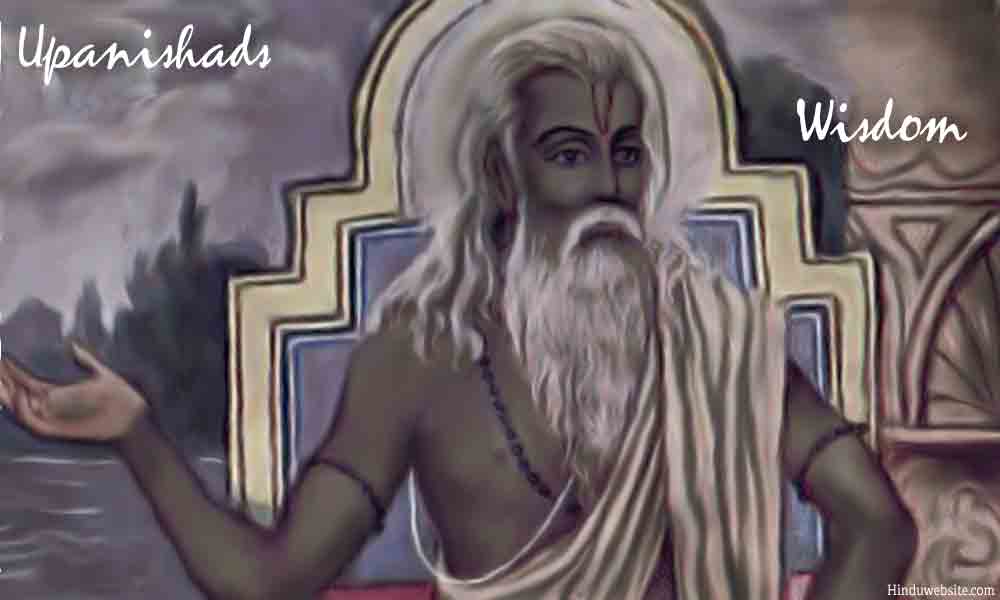
Myths and Misconceptions About The Upanishads

Please do not look for complete answers or information in these. They are fragments of thoughts which deal with only certain aspects of the chosen subject
The Upanishads occupy an important place in Hinduism. They richly contributed to the development of philosophy, teacher traditions and ascetic movements in the growth of Hinduism. However, not many people have read the Upanishads or know the truths about them. Hence, there are misconceptions about what they are, what they contain, and what they teach. The following are a few popular misconceptions about the Upanishads which are worth noting.
1. The Upanishads are the end part of the Vedas. It is true that traditionally the Upanishads are considered the end part of the Vedas. However, many Upanishads are derived from the Brahmanas and Aranyaka and do not strictly qualify as Vedanta or the end part of the Vedas.
2. All Upanishads are part of the Vedas. This assertion is also untrue. Only the most important and classical Upanishads form part of the Vedas. Some of them are associated with the Puranas and the Tantras, and some are independent works. The Upanishads that we have today are complete rewrites or partial compilations of older Upanishads. Some of them use ancient names such as Svetaketu, Aruni or Yajnavalkya to gain respect and recognition, but they might have been created a few centuries ago during the medieval times from previous ones or based on the teachings of their teachers traditions.
3. The Upanishads are very ancient. This is only partially true because of the one hundred plus Upanishads that are officially recognized, only a few, about 15 or so are very ancient. Of them also, only a few verses may actually belong to the early Vedic period and the rest were added at different times. Some Upanishads may be just a few hundred years old.
4. The Upanishads are sruti, not man made. Technically you may conclude that since the Vedas considered sruti, the Upanishad also qualify as the same. However, while the Samhitas and Brahmanas remained largely unchanged and unedited since ancient times, the same cannot be said about the Aranyakas and Upanishads. As stated before the present day Upanishads are largely recompilations and came to us from different Vedic schools (shakas) and teacher traditions. Therefore we cannot say clearly which Upanishads constitute sruti and which do not.
5. The Upanishads contain the knowledge of modern astronomy and psychology. This is untrue or true only in a limited sense. The Upanishad provide an insight into the ritual and spiritual knowledge of the Vedas. They deal with not only the knowledge of Atman, Brahman, creation, and liberation, but also with the knowledge of sacrificial rituals, magical spells, sexual charms, conception, lovemaking, etc. In some respects they may present rudimentary theories of modern astronomy and psychology but we cannot really put them in the same category.
6. The Upanishads were composed by Vedic seers. The knowledge of the Upanishads came to us from different sources. Some of verses certainly the work of great seers and scholars. However, we cannot say the same about every Upanishad or every verse found in them. Many of them are loose compilations of ancient texts and teachings of ancient masters preserved by their schools. They may contain teachings and philosophy of the Vedic seers, but we cannot definitively say which of the verses or Upanishads were composed by them.
7. The Upanishads uphold the school of Vedanta. Vedanta is one of the six schools of Hindu philosophy. The school predominantly derives its knowledge from the Upanishads, and other parts of the Vedas. However, due to the ambiguous nature of the verses, they have been used by different schools and sub schools in Hinduism to validate their arguments and provide verbal testimony in support of their theories. << >>
Suggestions for Further Reading
- What are The Upanishads?
- How old are the Upanishads?
- Exploring the universe the Upanishadic Way
- Which Upanishads One Should Read?
- Who Composed The Upanishads?
- Women in the Upanishads
- Mahavakyas in Your Daily Life
- Sexual Morality in the Upanishads
- Krishna in the Upanishads
- Follow Angirasa as Your Guru as Krishna Did
- How Many Times Do You Reincarnate?
- Are The Upanishads Better Than Modern Psychology?
- Popular Misconceptions About The Upanishads
- Popular Themes of the Upanishads
- The Difference Between Devas And Asuras, Or Between Gods And Demons
- What Brings You Prosperity And Fame?
- Birth and Conception in Hinduism
- The Wisdom of the Upanishads, Main Page
- Essays on The Upanishads
- Upanishads Home Page from Hinduwebsite.com
- Links To Translations of the Upanishads
- List of 108 Upanishads According To The Muktikopanishad
- Introduction to the Upanishads of Hinduism
- A Brief Introduction to the Upanishads
- Essays On Dharma
- Esoteric Mystic Hinduism
- Introduction to Hinduism
- Hindu Way of Life
- Essays On Karma
- Hindu Rites and Rituals
- The Origin of The Sanskrit Language
- Symbolism in Hinduism
- Essays on The Upanishads
- Concepts of Hinduism
- Essays on Atman
- Hindu Festivals
- Spiritual Practice
- Right Living
- Yoga of Sorrow
- Happiness
- Mental Health
- Concepts of Buddhism
- General Essays